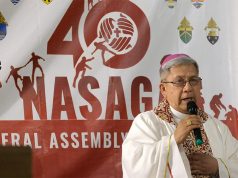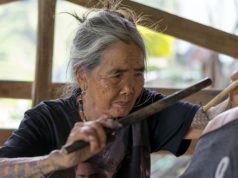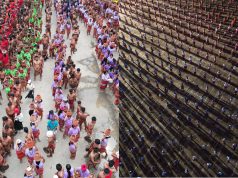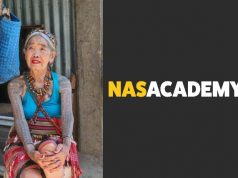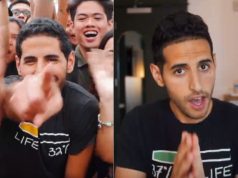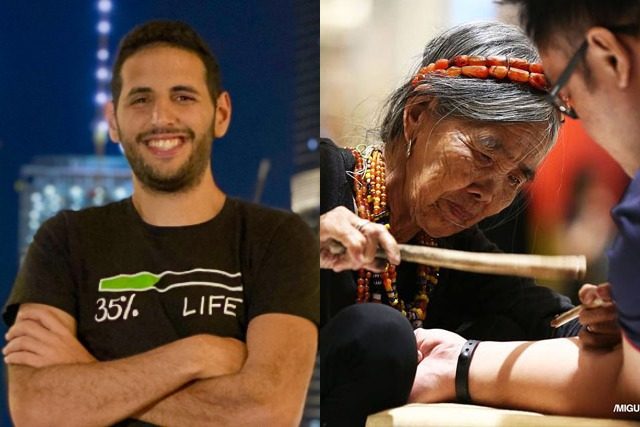
Online learning platform Nas Academy was accused of exploiting indigenous culture after the grandniece of Kalinga tattoo artist Whang-od slammed it for featuring a course on ancient tattoo art without the tattooist’s knowledge.
Gracia Palicas in an online post to a Facebook group called the platform’s “Whang-Od Academy” a “scam” and said that her grandmother “did not sign any contract with Nas Daily.”
“Some people are taking advantage of our culture. PLEASE HELP US STOP this disrespect to the legacy of Apo Whang Od and the Butbot Tribe,” she wrote on Wednesday.

Palicas in another Facebook post—which has since been deleted—also said she spoke with Whang-Od and found out that the latter “did not understand what the translators were saying.”
“Am sorry to tell you that she will not be joining the Nas Daily. I know you have good intentions of sharing our culture [with] the next generation. However, our village concern is that some people are profiting and exploiting our art and culture,” she said.
“I know you spoke to someone and gave some money and will share profits, but Apo Whang Od is not aware of your contract. Hope you sort this out. Thank you and have a nice day,” Palicas added.
Some Twitter users were able to take a screengrab of her post, as well as the now-taken-down course offering on the platform.
Yikes what’s going on here? pic.twitter.com/XqHR35Yi2p
— Tammy David (@tammydavid) August 4, 2021
The Nas Daily Academy is an initiative founded by Palestinian-Israeli vlogger Nuseir Yassin, known for creating content under the name “Nas Daily.”
It aims to mentor those aspiring to be content creators, reporters, designers, songwriters, basketball players and beauty queens, among others.
Filipinos are also featured as trainers, such as broadcast journalist Jessica Soho, Dubai-based fashion designer Michael Cinco and food content creator Erwan Heussaff.
Whang-od was also mentioned, who will supposedly teach people the “ancient art of tattooing” through the “Whang-Od Academy.”
The course offering has been taken down on the website following Palicas’ posts but based on the screengrabs, people would have the chance to learn her “methods” in traditional Kalinga tattoo making, the “cultural aspect of her medium” and “how she is passing down her art form.”
Whang-od’s grandniece was backed by other social media users who similarly accused Nas Daily of “exploiting” indigenous culture.
“This is blatant exploitation of indigenous people and their culture. May magagawa ba NCIP or any other organization dito?” a Twitter user said in response to the issue.
NCIP refers to the National Commission on Indigenous Peoples, a government agency responsible for protecting indigenous people’s rights.
“Profiting off of a culture that isn’t even yours to begin with? Anyone who has been there knows it doesn’t take two days, so did you really even go? Met with Apo?” another online user said.
“Disgusting @nasacademy. Shamelessly exploiting an indigenous artist for profit. Indigenous art isn’t something you can just package in an online course and sell for money. That’s their culture. And worst of all, she wasn’t even properly informed, so how could she have consented?” a different Filipino wrote.
A Twitter user who refers to herself as someone from the province says she is “disappointed” over the incident.
“Leave our culture and traditions alone if you’re just gonna exploit it and use it for your own personal gains. Have some respect,” she wrote.
Whang-od is considered the last and oldest “mambabatok” (traditional tattoo artist) from the Butbut tribe of Buscalan, Kalinga who uses the ancient hand-tapping method to ink skins with charcoal.
Reports note that the tattooing traditions in Kalinga go back to the pre-colonial period, with the tattoos being a symbol of prestige, honor, beauty and fortitude.
It is also considered a rite of passage and transition that an individual undergoes to become a full social person in the community.
Back in the day, Whang-od would sing a chant while marking an individual’s skin, as the tradition.
Their culture also states that the master tattooist could only pass the sacrosanct art to blood relatives to prevent the tattoos from becoming “infected.”
Whang-od’s known apprentices are Palicas and another grandniece, Elyang Wigan.
ALSO READ: Recognition for Whang-od to help preserve Kalinga culture




